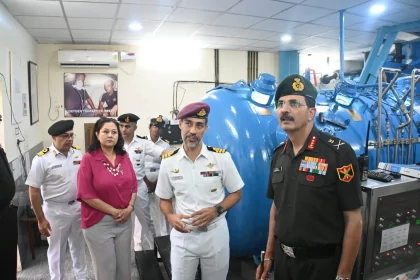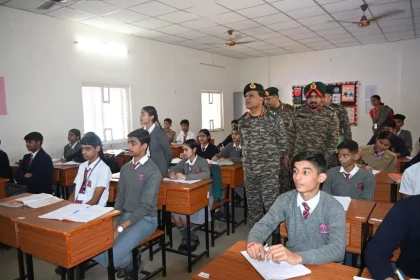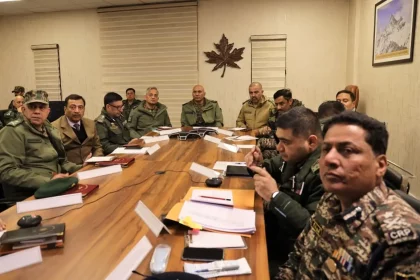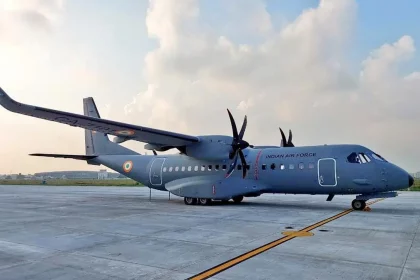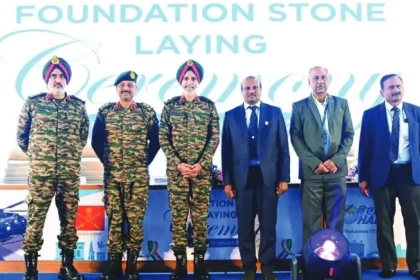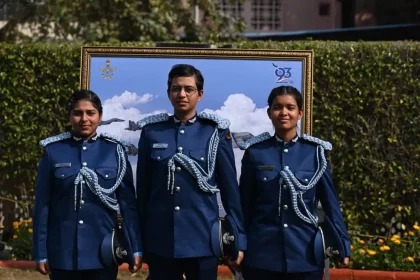Lt Gen Devendra Sharma Visits INS Satavahana, Reviews Advanced Submarine Training
GOC-in-C ARTRAC lauds innovation-led training infrastructure, stresses jointness and cross-service integration.
Lt Gen DS Kushwah Visits Nagpur, Kamptee and Pulgaon Military Stations
GOC MG&G Area reviews training, logistics, civil–military synergy and defence industry integration during four-day visit
Lt Gen Pratik Sharma Chairs Core Group Security Review Meeting in Srinagar
Army Commander Northern Command launches joint operational review to strengthen intelligence sharing and inter-agency coordination.
First ‘Made in India’ C-295 Aircraft Likely Before September, Says EAM Jaishankar
Jaishankar highlights defence manufacturing push, calls for zero tolerance to terrorism at India–Spain talks.
HAL Lays Foundation Stone for Strategic MRO Hub at Missamari, Strengthening Army Aviation in Eastern Theatre
New HAL facility in Assam to boost helicopter serviceability, reduce turnaround time, and enhance operational readiness under Atmanirbhar Bharat.
Indian Air Force Showcases Combat Power, Heritage and Jointmanship at Republic Day 2026 Press Preview
IAF unveils marching contingent, veterans’ tableau and grand flypast, highlighting air power, legacy and nation-building.

